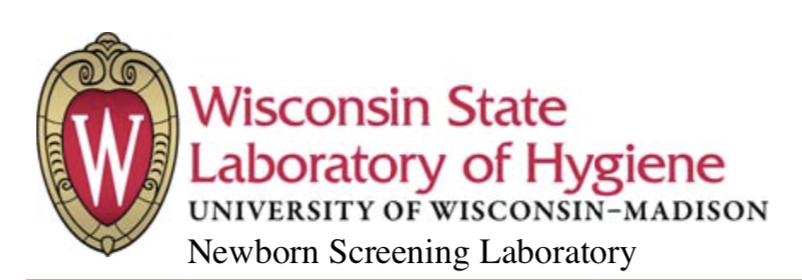
The following is an announcement from the Wisconsin State Laboratory of Hygiene
In July 2017, we informed you of a Pompe disease newborn screening pilot project funded by the National Institutes of Health.
As described in our July letter, Pompe disease is a genetically inherited lysosomal storage disease. Children with Pompe have difficulty breaking down glycogen due to a defective alpha‐glucosidase (GAA) enzyme; glycogen builds up in cells, particularly muscle cells, leading to poor muscle function. Pompe is a rare disorder, affecting about one in every 10,000‐40,000 newborns. The severity of the disease can vary widely, but some affected infants will die in the first year of life if not treated. This is called the “classic infantile” form. In the “late onset” form of the disease, individuals may not become ill until later in childhood, or not until they are adults.
We, a group of laboratory scientists and metabolic physician specialists in the state, [have completed the pilot] at the end of March, 2019. During the period of July 14, 2017 to January 31, 2019, twelve infants were identified as having potential “late onset” Pompe disease out of 99,018 screened infants; no infants with the “classic infantile” form were identified.
At this time, there is no nomination of Pompe disease to the Wisconsin newborn screening panel. At the end of March with the end of the pilot project screening for Pompe disease in Wisconsin will cease.
We greatly appreciate the assistance you have provided; please do not hesitate to contact one of us if you have any questions regarding this pilot project.
Mei Baker, MD
Wisconsin State Laboratory of Hygiene
William Rhead, MD
Children’s Hospital of Wisconsin
Gregory Rice, MD
American Family Children’s Hospital
Robert Steiner, MD
American Family Children’s Hospital
State Laboratory of Hygiene
465 Henry Mall Madison, WI 53706-1578
Phone: 608-262-6547
Fax: 608-262-5494
www.slh.wisc.edu

